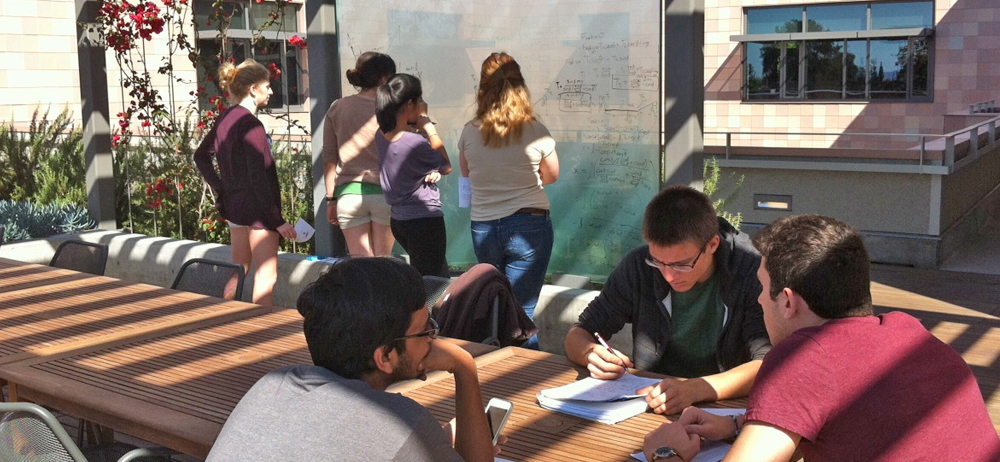Harvey Mudd Noted for Studiousness, Accessible Professors
August 8, 2018
Harvey Mudd College is listed among the country’s top undergraduate institutions in The Princeton Review’s 2019 edition of The Best 384 Colleges.
The Princeton Review chooses which colleges to include based on their outstanding educational programs, but does not rank the colleges academically. Instead, the guide ranks the top 20 colleges in 62 different categories from financial aid to campus food. The top 20 lists are based on The Princeton Review’s survey of 138,000 students attending the 384 colleges.
Top 20 rankings for Harvey Mudd include No. 3 in the category “Students Study the Most,” No. 3 for “Most Accessible Professors,” No. 9 for “Best Science Lab Facilities,” No. 17 for “LGBTQ-Friendly” and No. 19 for “Professors Get High Marks.” Student respondents also gave high marks to the College’s classroom and lab facilities and the ease of getting around campus.
In the Princeton Review profile, students surveyed praised Harvey Mudd professors for being “truly dedicated to undergraduate teaching” and “always willing to spend hours outside of class answering questions.” One student commented that “the work at HMC is very challenging, but I have had the best support system; from the Academic Excellence tutors providing help for all required Core classes to the professors who are readily accessible and enthusiastic helpers.”
Respondents described campus life as rigorous yet rewarding with an Honor Code that encourages students “to conduct themselves with honesty and integrity both personally and academically and to respect the rights of others.” A student shared that Mudders are “pretty much always eager to help one another.” Commenting about the tight-knit community, a student stated, “There is no segregation based on class year, major, race, academic ability, dorm or anything. Everyone is respectful, smart, aware, supportive and unique.”
The profile described Harvey Mudd as an excellent program in the sciences and engineering with strong undergraduate research opportunities and a very high percentage of students who go to graduate school. Among the student comments is praise for the College’s broad Core Curriculum, which “produces scientists who can rise to meet interdisciplinary challenges within the sciences” and facilitates “great post-grad opportunities.”
“We picked the 384 ‘best’ colleges for our book primarily for their outstanding academics: we highly recommend each one,” said Robert Franek, The Princeton Review’s editor-in-chief and the book’s lead author. “However, we know applicants need far more than an academic rating or ranking to find the college that will be best for them. We created our 62 ranking lists to help narrow that search. They are based entirely on data we gather beyond academics that gives insight into what the schools’ enrolled students say about their professors, administrators, school services, campus culture and student life. In the end, it’s all about the fit.”
